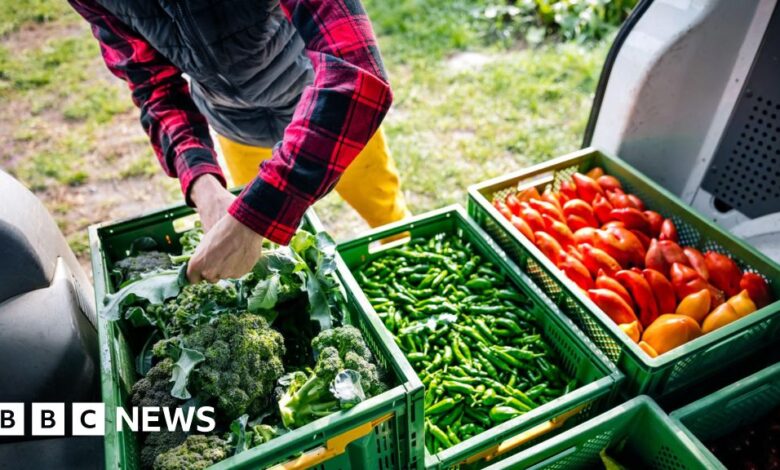Brexit deal impact is ‘worsening’, economists say

Economists warn that Brexit red tape for British businesses has already caused a decline in UK-EU trade in goods and the problem is getting worse.
The findings in the report by Birmingham-based Aston University Business School cover the three-year period after the Brexit trade deal was signed in 2020.
The value of UK goods exports to the EU fell by 27% and the value of goods imports fell by 32%, compared with what would have happened without Brexit, the report said.
However, exports of tobacco, railway and aircraft goods increased.
The diversity of trade exports has declined, with 1,645 UK product categories exported to every EU country.
The report excludes the services sector, which has performed better than many experts expected since Brexit.
The authors said there would be a “significant decline in EU-UK trade by 2023”.
“The negative effects of [trade agreement] has intensified over time, with 2023 showing a more pronounced trade decline than previous years,” the authors added.
Farmers, clothing manufacturers, wood and paper producers were the hardest hit sectors, with the value of exports to the EU from many sub-sectors falling by more than half.
The export value that decreased the most was edible fruits and nuts, down 73.5%.
Trade with smaller and more distant countries within the EU is most affected, while trade with larger and closer countries is least affected.
The authors say many small UK manufacturers have given up exporting small quantities to some EU countries since various forms of trade red tape or non-tariff barriers were introduced post-Brexit.
Increased regulations and laws, such as safety testing and labeling requirements, have contributed to the decline, said Jun Du, one of the study’s authors.
“While these measures protect consumers, competition and the environment, they also increasingly impose difficulties and costs on traders,” she told the BBC’s Today programme.
Mary Quicke of Quicke’s Cheeses in Devon told the BBC she found it “really, really difficult to deal with all the regulatory burden”.
She said she used to supply products directly to four customers in the EU but “we had to transfer to others”.
“We don’t have enough people to do the paperwork.”
A government spokesman said it would “work to improve our trade and investment relationship with the EU and remove unnecessary barriers to trade, while recognising that there will be no return to the single market, customs union or freedom of movement”.
The BBC understands that in recent meetings with the government, business representatives have been invited to contribute initial ideas for a “reset” of the trading relationship with the EU, focusing on “economic security”.
Progress is unlikely to be made until next year, when the new European Commission is firmly established and the UK has finalised new industrial and trade strategies.




